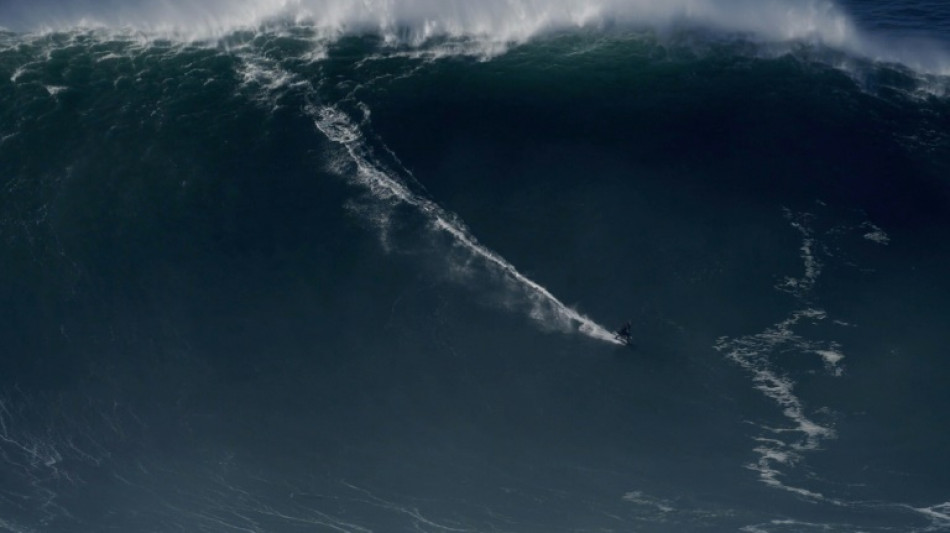

German big wave surfer turns to science to tame the breakers
Sebastian Steudtner already holds the world record for the largest wave ever surfed, but as the giant wave season begins, the German is looking to science and technology to chase a new high.
Harnessing the technical prowess of racecar maker Porsche and autoparts specialist Schaeffler, Steudtner is seeking to dwarf his record 26.21-metre (86-foot) wave set at the Portuguese surfers' Mecca of Nazare three years ago.
"With the world record wave I realised I've reached a limit for how fast my board can go," Steudtner told AFP of his last run, involving the wave reaching the equivalent of around eight storeys.
"Together with Porsche, we asked ourselves how we could make the board faster and more stable," said the 38-year-old Bavarian.
Surfers who increase their speed can take on bigger swells -- although it's not just a question of a "need for speed" but a question of safety as well.
"Speed is so important to us because the bigger the wave, the more speed I have to have to get away from it," said Steudtner.
"The power of the wave is an absolute force," he said, "like having several buildings pushing you."
Steudtner said the pressure of riding the biggest waves means surfers need to know their equipment will allow them to focus on the run itself.
Describing his record-breaking Nazare run in 2020, when he added almost two metres to the previous mark, he said: "I shoot across the wave at 80 kilometres (50 miles) an hour and concentrate 100 percent."
"I don't think about the past, the present and the future.
"I'm in the flow. I don't have time to think 'wow, this wave is beautiful'."
- 'A higher level' -
Steudtner first fell in love with surfing at the age of nine when boogie boarding in France.
With his parents' blessing, Steudtner traded landlocked Bavaria for Hawaii to pursue a career in surfing at the age of 16.
He worked on construction sites to earn money, while learning to surf in his own time.
"I've made a lot of decisions in my life that nobody understood at the time".
His burning curiosity may have taken him across the world but it has also propelled changes to the sport itself.
Technological innovations could take the sport "to a higher level", he said.
In order to truly let surfers harness and master the force of the ocean, surfboards need not only to be faster, but also more stable and manoeuvrable at extreme speeds.
Porsche engineers helped develop a new board with an adapted nose, tail and edges to improve the hydrodynamics.
Schaeffler developed a friction-reducing coating which helps the board glide through the water.
Through tests in a wind-tunnel simulator, Steudtner was able to see how he should position himself on the board as it handles monster waves.
"Through changes to the board and altering Sebastian's stance, we were able to reduce air resistance by 20 percent," said Markus Schmelz, a project manager at Porsche.
The innovations "made the board faster and more stable at high speeds".
The new board, coloured yellow and black, has since been delivered.
Steudtner, who trains daily in the gym to build up his muscle strength, was set for an autumn and winter chasing big waves.
Accompanied by a team of almost 30 people, including military doctors, Steudtner said he hopes to "understand the journey of the waves in the ocean".
With the power of science and design in tow, the German may be only days away from testing the board on the biggest stage of all.
"I'll have to give my best".
A.Pérez--ESF




